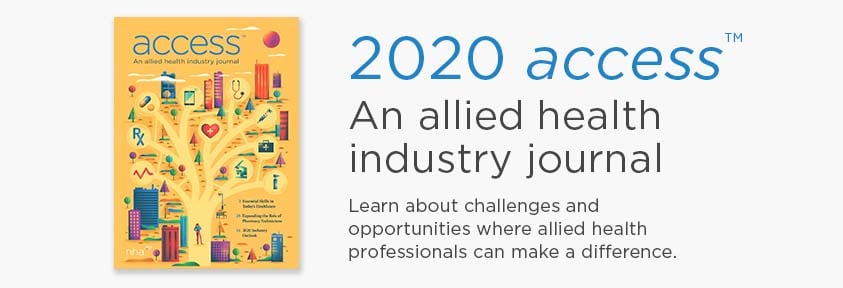Controlled substance abuse is an ongoing challenge for medical professionals. The opioid crisis has lasted for well over a decade with no end in sight, and even when it’s eventually brought under control, other controlled substances will still have recreational appeal.
Medical providers are given significant guidance and training on preventing controlled substance abuse, but many pharmacy technicians — who interact regularly with patients and can help spot and prevent controlled substance abuse — don’t receive the same training. Let’s take a look at the most important reasons why controlled substances should be a specific focus of pharmacy technician training.
Knowing When to Use Caution
There are five distinct categories of controlled substances. Known as “schedules,” the category in which a drug is placed depends on two key factors: the range of acceptable medical uses for the drug, and the drug’s potential for abuse and/or dependency.
Schedule II drugs such as Vicodin, methadone, and oxycodone currently have limited acceptable medical use and a high risk of abuse, and your pharmacy technicians likely already exercise caution when dispensing those drugs. But there are lesser-known drugs that can be just as risky; unfortunately, without a good understanding of a drug’s classification, technicians may not know how to do their due diligence with pharmacy orders.
Improved Patient Safety
Most of us can spot an individual with a severe substance use disorder. But when it comes to milder forms of substance use disorder, the symptoms can be much more subtle, and thus, more difficult to detect. Identifying potential substance use disorders before they spiral out of control requires training, and there’s no better candidate for that training than technicians.
Pharmacy technicians tend to interact with patients more often than the pharmacist does, which means they’re more likely to notice when a patient is displaying early signs of substance use disorder. Studies have shown that early intervention can help improve an individual’s odds of overcoming a substance use disorder. Patient safety is a key part of a technician’s job, and controlled substance training plays a crucial role in ensuring that safety.
Diversion Prevention
Knowing how to spot red flags for substance use disorder is an important part of dispensing controlled substances, but what if the individual is not abusing their prescription, but selling it? Diversion (the unlawful channeling of regulated pharmaceuticals from legal sources to the illicit marketplace) is a significant issue, and unlike substance use disorders, diversion tactics — which can be employed by pharmacy patients and pharmacy employees — can be difficult to spot without proper training.
Protecting Your Pharmacy from Liability
Dispensing controlled substances is a big responsibility, and if your pharmacy doesn’t follow the guidelines, the monetary and legal penalties you incur could cripple your business. Controlled substances are strictly regulated, and there are rules all pharmacies must follow for everything from refills and transferring prescriptions to DEA numbers and record-keeping requirements.
There is a lot of information to keep track of. If your pharmacist is the only one trained on these procedures, their workload increases exponentially — as does the likelihood they’ll eventually make a serious error.
How PharmaSeer™ Can Help
PharmaSeer™ is a digital learning resource built to help technicians expand their skillset and maximize their career potential, including in the dispensing of controlled substances. PharmaSeer™ offers learning modules for controlled substances; these modules include training and the opportunity to test their knowledge on the following areas:
- Controlled substance schedules
- Dispensing controlled substances
- DEA numbers and record keeping
- Preventing diversion of controlled substances
- Identifying substance use disorder in patients and colleagues
As we’ve discussed before, with the right training, pharmacy technicians can help reduce the pharmacist’s workload and create a better overall pharmacy experience for patients. When it comes to controlled substances, a well-trained pharmacy technician can help protect high-risk patients, your pharmacy, and your community.





